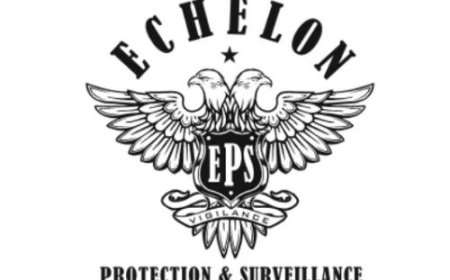Listening Skills Every PSYCH-K® Facilitator Needs: Creating a Safe Space for Transformation
This article explores the key listening skills every PSYCH-K® Facilitator must develop to support powerful, respectful, and heart-centered sessions.

Effective listening is the cornerstone of transformational work, and for PSYCH-K Facilitators, it is absolutely essential. In a modality focused on shifting limiting subconscious beliefs and fostering alignment between the conscious, subconscious, and superconscious minds, the ability to truly listen goes beyond hearing wordsit involves tuning into the full spectrum of a clients communication, both verbal and nonverbal. Whether a client is navigating emotional distress, seeking clarity, or stepping into empowerment, the way a facilitator listens can shape the trajectory of their healing journey.
This article explores the key listening skills every PSYCH-K Facilitator must develop to support powerful, respectful, and heart-centered sessions.
Active Listening: The Foundation of Trust
Active listening means giving full attention to the speaker, not just mentally but emotionally and energetically. Its about being fully present. For a PSYCH-K session to be effective, the client must feel heard and validated. This starts with:
-
Maintaining eye contact (when appropriate)
-
Nodding or using minimal verbal encouragers like I see or Go on
-
Avoiding interruptions
-
Refraining from jumping in with advice or solutions prematurely
In PSYCH-K, active listening helps the facilitator understand the clients presenting issue and how it connects to underlying beliefs. The facilitator must stay attuned to the story behind the words.
Reflective Listening: Rephrasing for Clarity
Reflective listening is a technique that allows facilitators to repeat or paraphrase what the client has said to ensure understanding. For example:
Client: I always feel like Im not good enough, no matter how hard I try.
Facilitator: So you feel that despite your efforts, theres still a sense that youre not measuring up?
This practice not only confirms comprehension but also allows clients to hear their thoughts mirrored back. It can help them gain clarity and uncover patterns that they may not have been fully conscious of.
Listening Without Judgment
Creating a non-judgmental environment is crucial. Clients often come with deeply personal, vulnerable issues, and the facilitator must be a neutral presence. This involves:
-
Avoiding labeling emotions as good or bad
-
Not expressing personal opinions about the clients situation
-
Holding compassionate space without rushing to fix or solve
PSYCH-K is not therapy, but the facilitator plays a critical role in ensuring that the client feels safe enough to reveal the truth of their experience. Non-judgmental listening invites authenticity and transformation.
Listening to Whats Not Being Said
PSYCH-K Facilitators must also develop the skill of intuitive listeningbeing sensitive to nonverbal cues, body language, tone, pauses, and energy shifts. Sometimes what the client is not saying is just as important as what they do say.
This includes:
-
Noticing discomfort, hesitation, or repeated patterns
-
Sensing emotional undercurrents (anger, fear, sadness)
-
Picking up on contradictions between words and feelings
This kind of listening is part of the sacred, intuitive space of a PSYCH-K session where the subconscious can begin to surface. It requires stillness, attunement, and trust in the process.
Empathetic Listening: Feeling with, Not for
Empathy allows facilitators to connect deeply without taking on the emotional weight of the clients experience. Empathetic listening involves:
-
Acknowledging the clients emotional reality
-
Validating their experience without pity
-
Maintaining healthy emotional boundaries
Empathy says, Im with you, not Let me carry it for you. In PSYCH-K, where beliefs around self-worth, trauma, or fear may surface, empathy can be the bridge that allows clients to feel supported while they do their own inner work.
Listening with the Whole Self
PSYCH-K is a spiritual as well as psychological process. Facilitators are encouraged to listen not only with the ears, mind, or heart but with their whole being. This holistic listening might involve:
-
Listening from a neutral state of consciousness (Whole-Brain State)
-
Allowing the superconscious to guide the session
-
Trusting inner nudges or intuitive insights while staying grounded
Listening with the whole self supports alignment between the facilitator and the clients highest good, allowing the session to unfold organically and meaningfully.
Staying Present in Silence
Many new facilitators are uncomfortable with silence, fearing it means the session is stalling. However, silence can be profoundly healing. Allowing space after a client speaks gives them room to process and go deeper.
Some of the most transformative breakthroughs arise in the stillness. The facilitators role is not to fill every gap with words but to allow space for insight to emerge.
Listening for Readiness and Permission
In PSYCH-K, honoring the client's readiness is essential. Facilitators must be sensitive to where the client is emotionally, psychologically, and spiritually. This involves listening for:
-
Signals of resistance or overwhelm
-
Words that reveal doubt or uncertainty
-
Invitations to go deeper or to pause
When facilitators listen for readiness, they support the clients sovereignty. This aligns with the principle of Do with, not to or for, which is fundamental in PSYCH-K facilitation.
Conclusion: Listening as Sacred Service
For a PSYCH-K Facilitator, listening is not a passive activityit is an active, intentional, sacred form of service. It builds the trust necessary for belief change, creates the conditions for healing, and honors the dignity of the clients inner wisdom.
As facilitators refine their listening skills, they become more effective channels for transformationnot by doing more, but by being more present. Deep listening opens the door for change at the subconscious level, where true healing and empowerment begin.



































